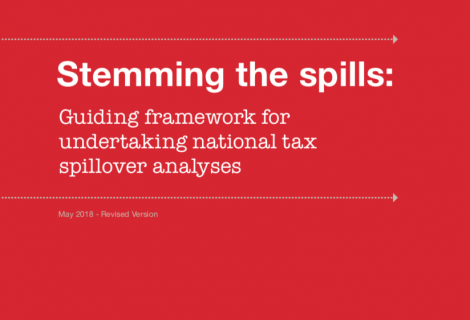
Over the past decade, scandal after scandal has exposed how multinational companies use national tax systems to avoid paying tax in a third country. These are examples of tax spillover effects, where tax rules and practices in one country directly or indirectly affect tax revenues, rules and practices elsewhere. It is widely recognised by institutions such as the IMF that these spillover effects are significant and sizeable. In particular, developing countries suffer more than rich countries from international tax spillover effects that they did not themselves create.
Tax is central to the financing of the 2030 Agenda for Sustainable Development, to which all EU member states have committed. EU member states have also committed to the concept of policy coherence for development (PCD), ensuring that all their national policies, including those related to taxation, will take into account their impact on developing countries. The European Parliament is now calling for EU member states to conduct national tax spillover analyses to honour their international commitments to developing countries and make more informed policy decisions.
We believe that national tax spillover analyses are key to achieving fair and responsible tax policies. This new report sets out a guiding framework for national tax spillover analyses by EU member states, and aims to start the discussion on this important topic. The guiding framework sets out a number of recommendations around the methodology and design of these analyses, highlighting the importance of transparency and public accountability throughout the process.
The report was first published in July 2017 and updated in May 2018.